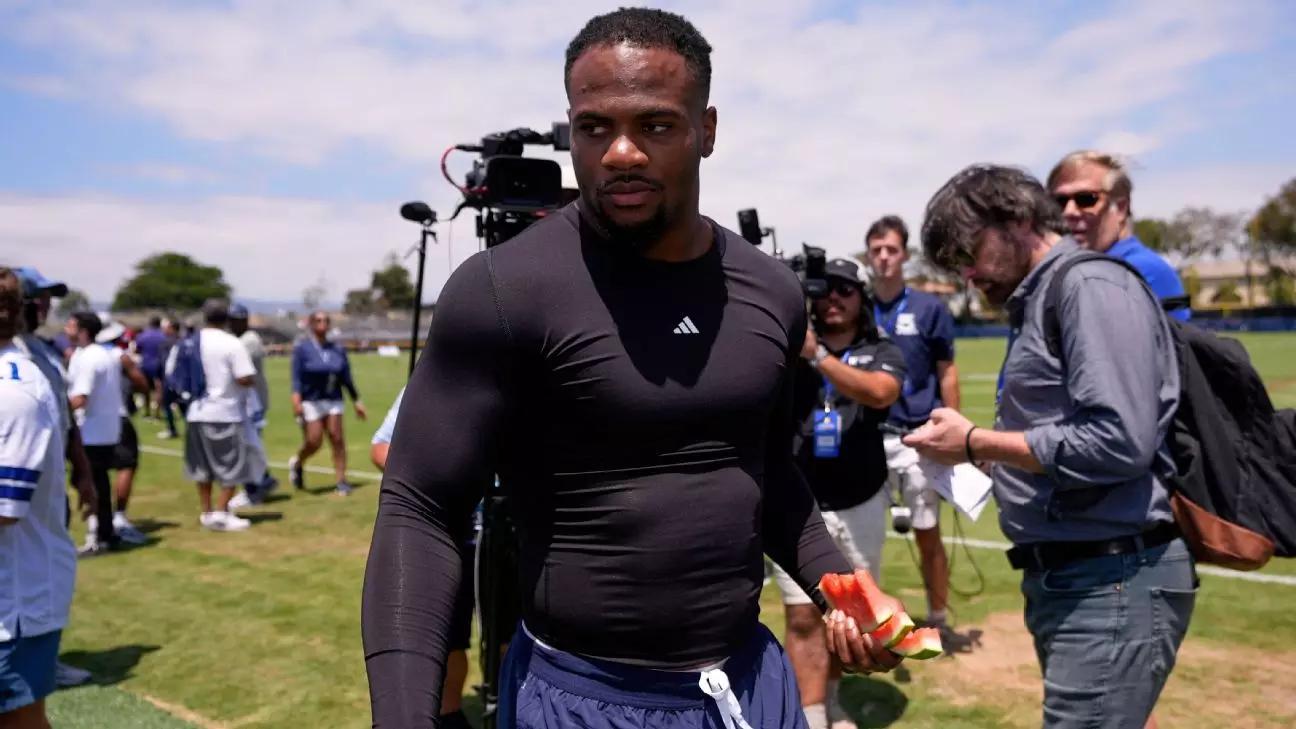Negotiating contracts in professional sports, especially within the NFL, is more than just numbers; it’s a reflection of leadership, vision, and the willingness to stand firm on what you believe your players deserve. Jerry Jones, owner of the Dallas Cowboys, exemplifies this ideology with his unapologetic stance on Micah Parsons’ value. His assertion that Parsons would have been the highest-paid non-quarterback player in NFL history if the deal had gone through underscores a broader belief: true leadership demands conviction and the courage to fight for your team’s star talents. Jones’ confidence signals a deep-seated understanding that in the competitive world of football, assertive negotiations often directly correlate with team success.
Jones’ comments reveal a philosophy that emphasizes the importance of establishing dominance in negotiations, not just for monetary gain, but for the message it sends to the rest of the league and to the players. His pointed critique of Parsons’ agent reflects his disdain for what he perceives as obstacles created by external representations, asserting that ultimate control resides with the team’s management. This reveals a crucial insight: successful negotiations are less about the agent’s tactics and more about the organization’s resolve.
Balancing Loyalty and Business Acumen
The ongoing tug-of-war over Parsons’ contract exposes an intriguing tension in sports management: balancing genuine loyalty to franchise players with the brutal realities of business. Jones’ unwavering stance indicates a desire to demonstrate a clear message to his players and the league. He’s willing to prioritize what he believes Parsons has earned, even if it means delaying the deal or risking player dissatisfaction. There’s a calculated risk here; one that involves potentially unsettling chemistry or undermining player trust. Yet, Jones sees this risk as necessary to establish a precedent for what exemplary negotiations look like under his leadership.
Notably, Jones emphasizes his role as the financial steward, the one who “writes the check.” This positioning underscores a philosophical approach: leadership is ultimately about making tough decisions to sustain a competitive advantage. The analogy of managing the check versus the player’s performance highlights an understanding that financial commitment and player output are intrinsically linked. Jones hints at a strategic patience, implying that he’s prepared to deploy franchise tags or retain Parsons through existing options rather than rushing into a potentially unfavorable deal.
The Long-Term Strategy and Its Implications
The decision to hold off on a long-term contract while considering the franchise tag indicates a pragmatic approach rooted in long-range strategic planning. By doing so, Jones ensures flexibility, retains leverage, and preserves the ability to shape the roster’s future. This stance also communicates to Parsons and the rest of the team that negotiations are rooted in performance, value, and strategic importance rather than mere sentiment.
Furthermore, Jones’ reference to Dak Prescott’s contract history illustrates that he’s not unfamiliar with the complexities of franchise negotiations. His willingness to treat Parsons similarly—initially delaying a guaranteed deal, then eventually reaching a top-tier contract—demonstrates the importance he places on consistency and precedent. He’s signaling that while they want to reward star players, those rewards have to be earned within a tangible framework of team stability and financial prudence.
Ultimately, Jones’ approach underscores a vital lesson: exceptional teams are often built on bold decisions, unwavering confidence, and the readiness to stand firm in negotiations. His confidence in Parsons’ talent, paired with strategic patience, aims to set a paradigm where talent is celebrated, but business acumen remains paramount. The message is clear—leadership is about making tough calls and having the grit to see them through, knowing that the results often dictate the future of the franchise.


Leave a Reply